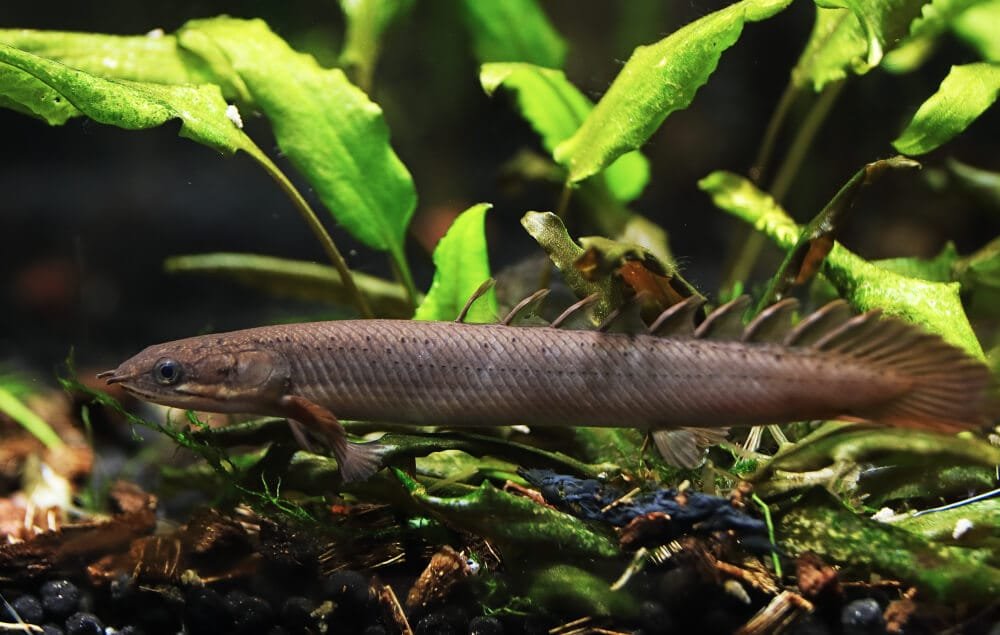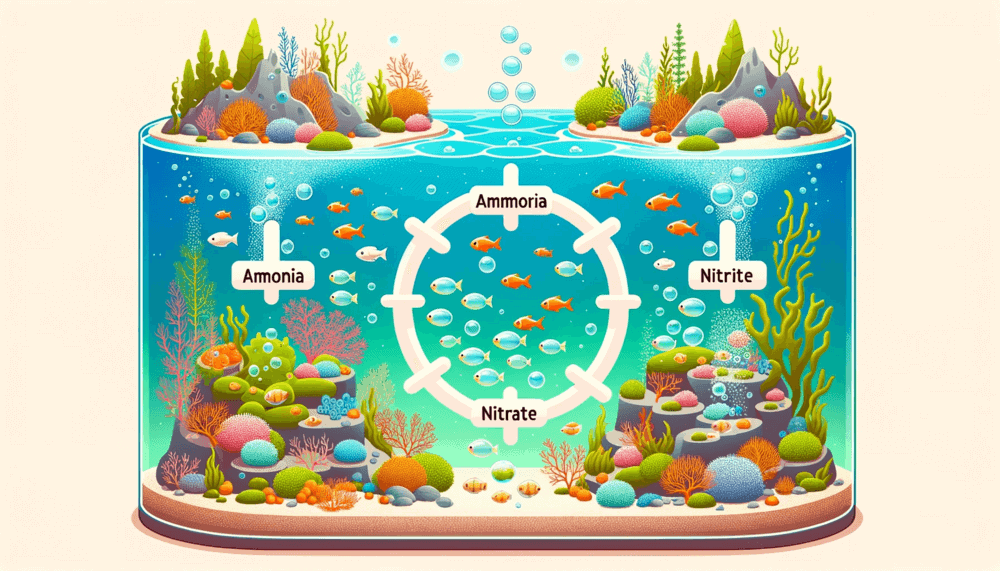Have you ever wondered what to do with your beloved aquarium fish when they outgrow their tanks or when you can no longer take care of them? The question of whether you can release aquarium fish into the wild is a common one among fish owners. In this article, we will explore the potential environmental and ecological impacts of releasing aquarium fish into natural ecosystems and provide some guidance on responsible alternatives. Whether you are a passionate fish enthusiast or simply curious about the topic, join us as we navigate through the intricacies of releasing aquarium fish into the wild.
Reasons for Reconsidering Releasing Aquarium Fish
Potential Ecological Impact of Released Aquarium Fish
When considering releasing aquarium fish into the wild, it’s essential to recognize the potential ecological impact this action could have. Releasing fish that have been bred and raised in captivity into natural water bodies can disrupt the delicate balance of ecosystems. These fish often possess traits and behaviors that are not seen in their wild counterparts, posing a threat to native species and the overall biodiversity of the ecosystem.
Spread of Diseases and Parasites
Another crucial factor to consider when contemplating releasing aquarium fish is the risk of spreading diseases and parasites. Fish kept in home aquariums may carry pathogens that can harm or even wipe out native fish populations. These diseases and parasites can be transmitted through direct contact or through the introduction of contaminated water into natural systems. Releasing infected fish without proper testing and quarantine procedures can have devastating consequences for the health of wild fish.
Introduction of Invasive Species
One of the most significant concerns related to releasing aquarium fish into the wild is the potential introduction of invasive species. Invasive species establish themselves in new environments where they have no natural predators or competition. This can lead to the displacement and decline of native species, disrupting the delicate ecological balance. The release of non-native fish, even unintentionally, can have severe consequences for both the natural environment and the economy.
Competition with Native Species
The release of aquarium fish can also lead to increased competition for resources, such as food and habitat, with native fish species. Many aquarium fish are adapted to thrive in artificial conditions and may outcompete native fish for limited resources. This competition can result in reduced fitness and population declines of native species, leading to long-term negative consequences for the overall health and stability of ecosystems.
Alternatives to Releasing Aquarium Fish
Finding a Suitable Home for Unwanted Fish
If you find yourself with unwanted aquarium fish, it is crucial to explore alternative options before considering releasing them into the wild. One alternative is finding a suitable home for these fish within the aquarium-keeping community. There are often local online forums or social media groups where hobbyists can connect and find new owners for their fish. This way, the fish can continue to be cared for in an appropriate environment.
Donating to Local Aquariums or Pet Stores
Another option is to donate your unwanted aquarium fish to local aquariums or pet stores. Many establishments are willing to accept well-cared-for fish and provide them with a suitable environment. These institutions often have experienced staff who can ensure the well-being of the fish and potentially find them new homes with other aquarium enthusiasts.
Participating in Fish Swaps and Exchanges
Participating in fish swaps and exchanges is another excellent opportunity to find new homes for aquarium fish. These events bring together hobbyists who are looking for specific species or varieties of fish while also offering an avenue to rehome unwanted fish. By participating in these events, you can ensure that your fish will join a community of enthusiasts who can provide them with the attention and care they need.
Legal and Ethical Considerations for Releasing Aquarium Fish
Laws and Regulations on Fish Releases
Before releasing aquarium fish into the wild, it is crucial to familiarize yourself with relevant local, regional, and national laws and regulations. Many jurisdictions have specific rules in place to protect native ecosystems from the potential harm caused by non-native or invasive species. Violating these regulations can result in fines, legal consequences, and significant damage to ecosystems. By educating yourself on the laws and regulations, you can make an informed decision and take the necessary steps to ensure the conservation of natural habitats.
Ethical Implications of Releasing Captive Fish
Ethically, releasing aquarium fish into the wild raises significant concerns. These fish have been bred and raised in captivity and may lack the necessary skills or adaptability to survive in natural environments. By releasing them, you expose them to potential stress, injury, disease, and death. It is our responsibility as responsible fishkeepers to prioritize the well-being and conservation of both captive and native fish populations. Instead of releasing them into unfamiliar and challenging habitats, we should aim to find appropriate and responsible alternatives.
Proper Disposal of Aquarium Fish
Humanely Euthanizing Aquarium Fish
In situations where finding a suitable home for unwanted aquarium fish is not feasible, euthanizing them humanely is a responsible option. There are several approved methods for euthanizing fish, including using clove oil or commercial euthanasia products available at pet stores. It is essential to follow the instructions provided and ensure that the procedure is conducted without causing unnecessary suffering to the fish. By choosing this method, you can ensure that the fish is spared unnecessary stress and potential harm to native ecosystems.
Safe Preparation and Disposal Methods
It is crucial to handle the disposal of deceased aquarium fish responsibly. If buried, they should be done so in a safe manner, ensuring that other animals cannot access the remains. If incineration is an option, it should be done in a safe and controlled environment to prevent the spread of pathogens or parasites. Never dispose of fish carcasses in natural water bodies, as this can lead to contamination and potential ecological harm. Responsible disposal of deceased aquarium fish is an essential step in preventing any unintended negative consequences.
Educating Others about Responsible Fishkeeping
Raising Awareness about the Issue
One of the best ways to promote responsible fishkeeping and discourage the release of aquarium fish into the wild is by raising awareness about the potential ecological impacts. By educating others about the risks associated with releasing fish, we can foster a culture of responsible pet ownership and conservation. This can be done through social media platforms, community events, or even organizing educational workshops. When people understand the potential consequences, they are more likely to make informed decisions and seek alternative solutions.
Promoting Sustainable Aquatic Hobby
Promoting a sustainable aquatic hobby is another vital aspect of educating others about responsible fishkeeping. Encouraging hobbyists to choose fish species that are compatible with their tank’s size and conditions, promoting responsible breeding practices, and advocating for the conservation of native fish species are all valuable steps towards a more sustainable hobby. By emphasizing the importance of responsible and ethical practices, we can minimize the need to release aquarium fish into the wild and ensure the long-term health of both captive and wild fish populations.
Case Study: The Lionfish Invasion
Introduction and Impact of Lionfish
The Lionfish invasion is a prime example of the devastating consequences that can arise from the release of aquarium fish into the wild. Native to the Indo-Pacific region, these beautiful but highly invasive fish have become a significant threat to marine ecosystems in the Atlantic Ocean and Caribbean Sea. Lionfish have no natural predators in these regions and possess venomous spines, making them formidable predators of reef fish and other marine organisms. Their rapid population growth and consumption of native fish species have caused substantial damage to coral reefs and fragile marine ecosystems.
Preventing Future Invasions
The Lionfish invasion serves as a powerful reminder of the importance of preventing future introductions of invasive species through the release of aquarium fish. To prevent similar disasters, it is crucial to enforce stricter regulations on the importation and trade of potential invasive species. Additionally, educating aquarium hobbyists about the risks posed by releasing non-native species into the wild is vital. By working together to raise awareness, improve legislation, and promote responsible fishkeeping practices, we can help prevent future invasions and protect our natural environments.
Conclusion
As aquarium enthusiasts, it is essential that we take our responsibility towards the environment seriously. Releasing aquarium fish into the wild can have severe ecological consequences, including the spread of diseases, introduction of invasive species, and competition with native species. By exploring alternative options, such as finding suitable homes for unwanted fish, donating them to local aquariums or pet stores, or participating in fish swaps and exchanges, we can ensure the well-being of both captive and native fish populations. Additionally, understanding and adhering to laws and regulations, as well as considering the ethical implications of releasing captive fish, are essential aspects of responsible fishkeeping. Proper disposal methods and raising awareness about responsible fishkeeping are important in minimizing the risks associated with releasing aquarium fish. By educating ourselves and others, we can promote a sustainable aquatic hobby and contribute to the preservation of our natural ecosystems. Let’s strive to be responsible stewards of the underwater world we love.




